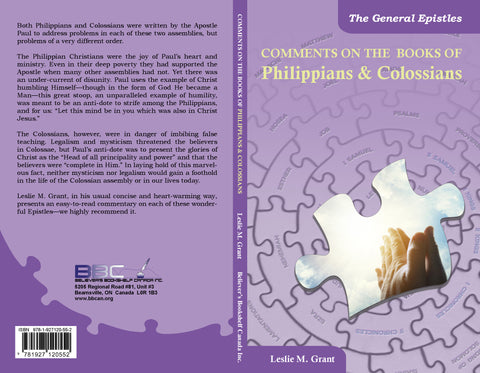Both Philippians and Colossians were written by the Apostle Paul to address problems in each of these two assemblies, but problems of a very different order. The Philippian Christians were the joy of Paul’s heart and ministry. Even in their deep poverty they had supported the Apostle when many other assemblies had not. Yet there was an under-current of disunity.
Paul uses the example of Christ humbling Himself—though in the form of God He became a Man—this great stoop, an unparalleled example of humility, was meant to be an anti-dote to strife among the Philippians, and for us: “Let this mind be in you which was also in Christ Jesus.” The Colossians, however, were in danger of imbibing false teaching. Legalism and mysticism threatened the believers in Colossae, but Paul’s anti-dote was to present the glories of Christ as the “Head of all principality and power” and that the believers were “complete in Him.”
In laying hold of this marvelous fact, neither mysticism nor legalism would gain a foothold in the life of the Colossian assembly or in our lives today. Leslie M. Grant, in his usual concise and heart-warming way, presents an easy-to-read commentary on each of these wonderful Epistles—we highly recommend it.
